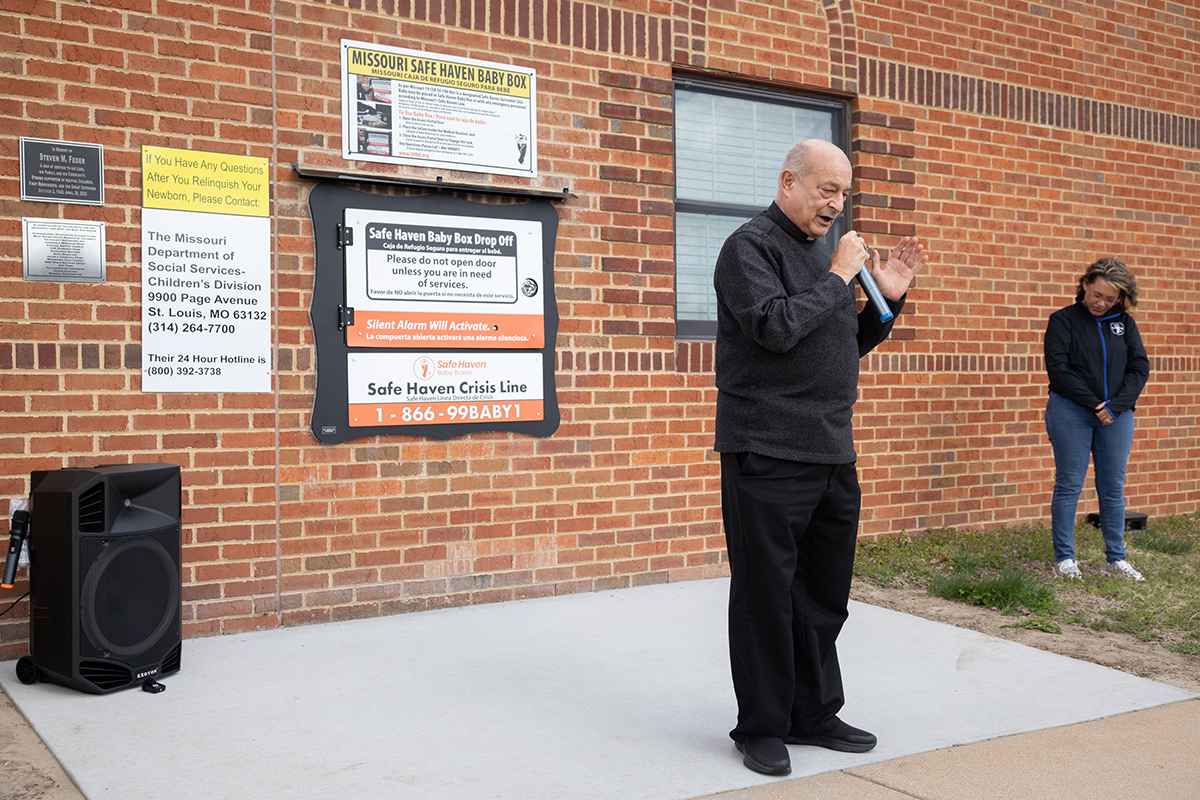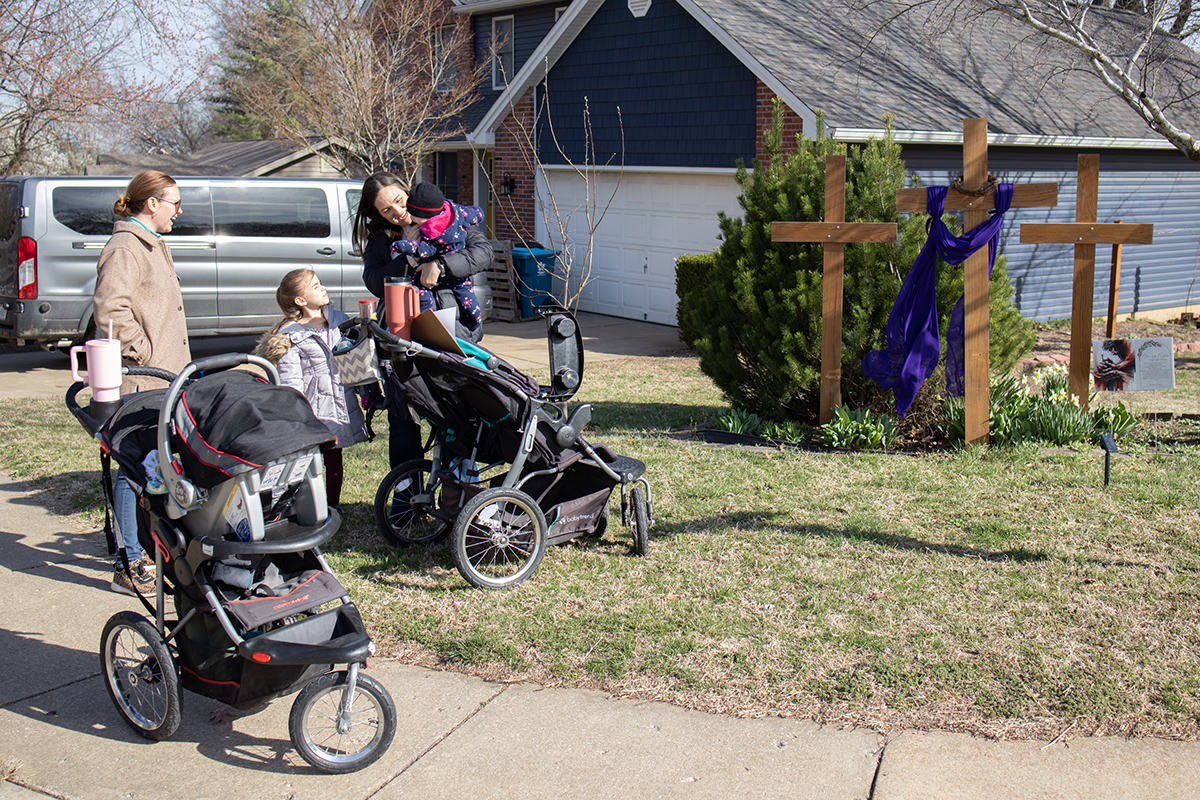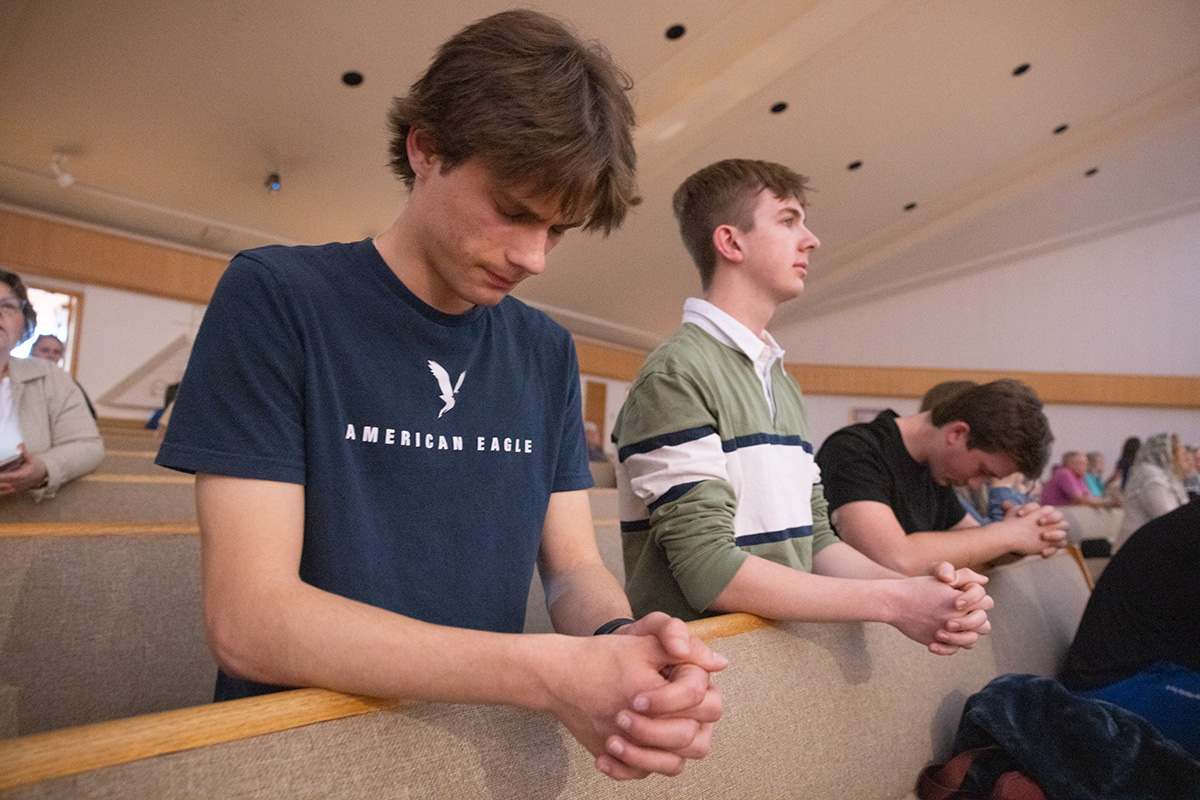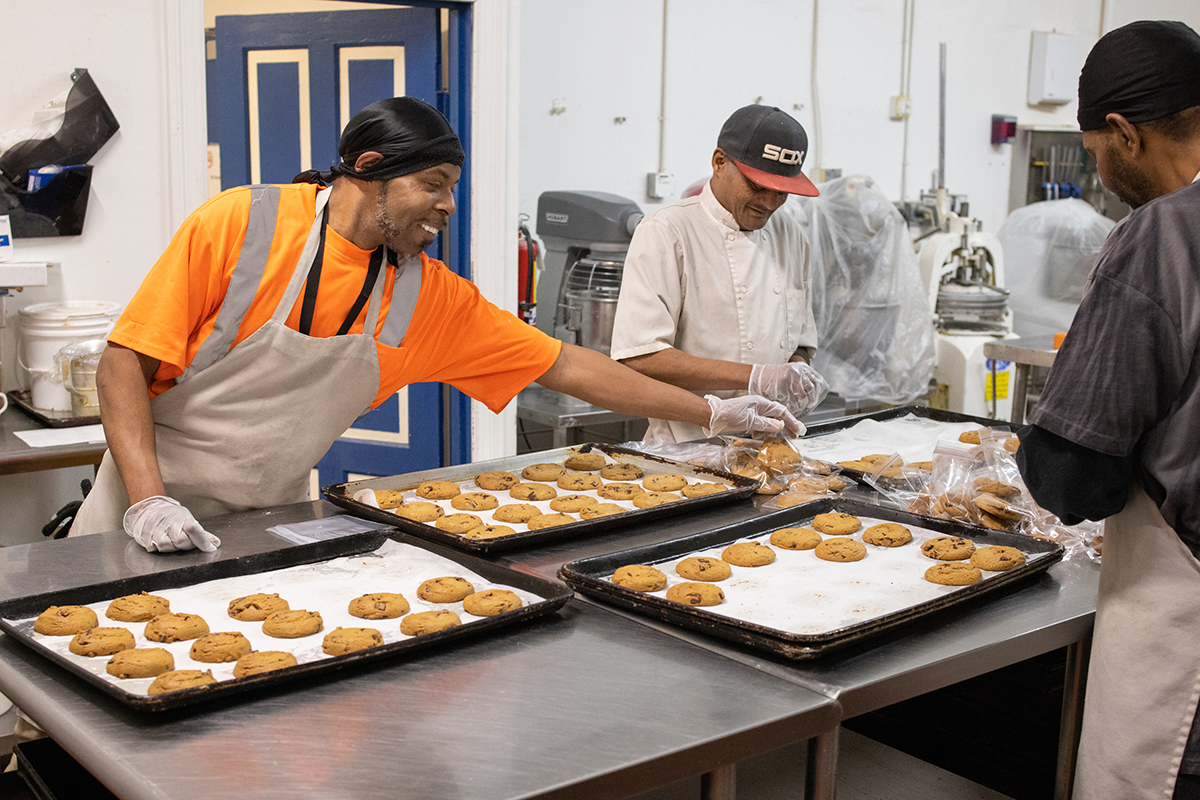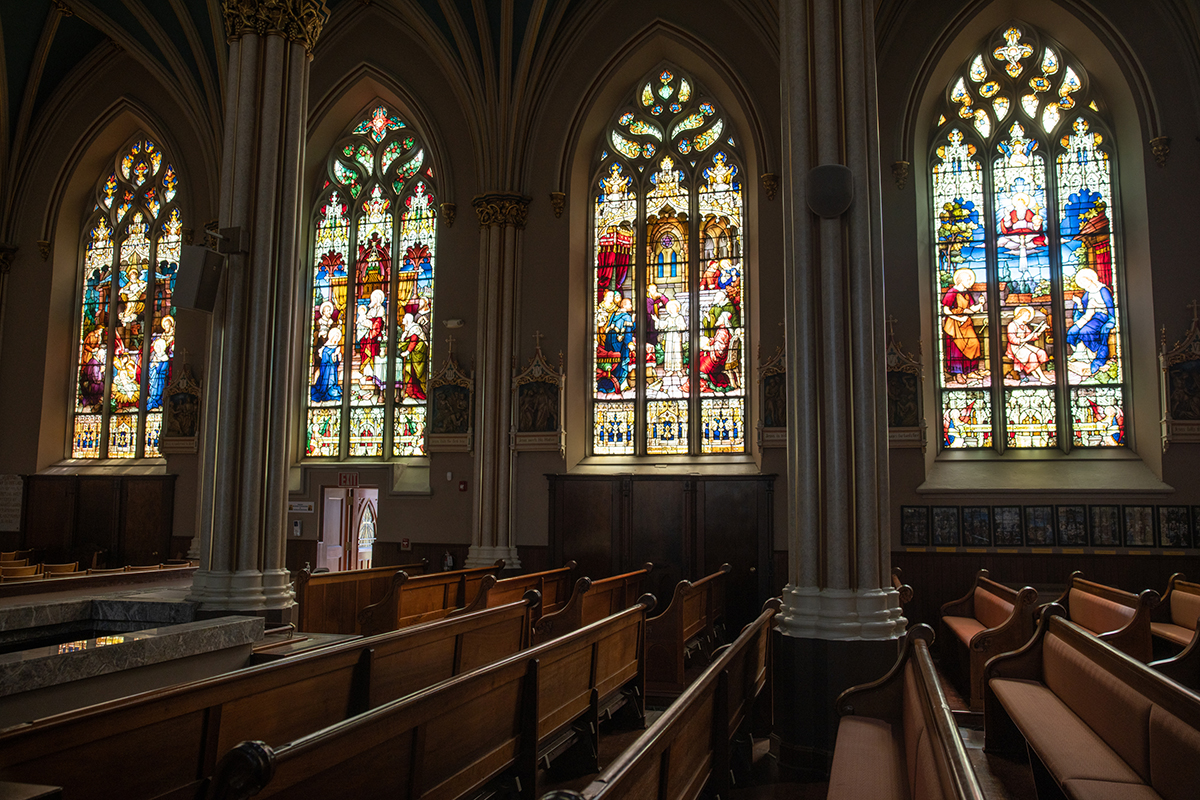‘Humane response’ sought to refugee influx
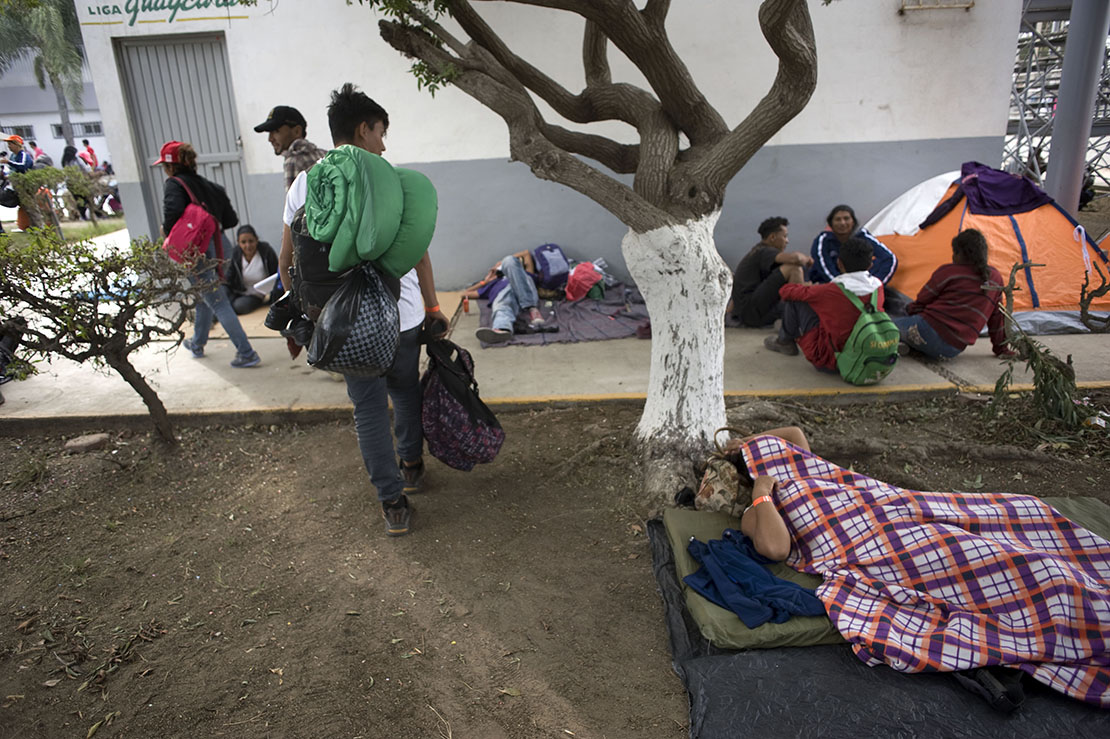
Archbishop Carlson, others cite vulnerable people in need of compassion
Catholics in St. Louis are asked to maintain a humane response to refugees fleeing from Central America to the United States.

In a statement earlier this month, Archbishop Robert J. Carlson stated that “sadly, we are seeing, once again, a rise of anti-immigrant attitudes and rhetoric that actively seeks to foster fear-mongering and hate toward people who are vulnerable and in need of compassion.”
A deeper look delves into the root causes of migration, especially those associated with state-sanctioned violence, gang recruitment, poverty and lack of educational opportunities, Archbishop Carlson explained. “Rooted in our Christian vocation to be agents of justice and peace, we must denounce any attitudes, words or actions that denigrate the dignity of the human person and demonize people.”
A caravan of thousands of people from Central America has traveled north for weeks to seek asylum in the United States. A presidential order signed by President Donald Trump Nov. 9 said that people entering the country without documents over the next 90 days will not be eligible for asylum unless they present themselves formally at official ports of entry. That order was halted temporarily by a court order Nov. 19. Catholic leaders, including Bishop Joe S. Vasquez, of Austin, Texas, chairman of the U.S. Conference of Catholic Bishops’ Committee on Migration, urged the administration to seek other solutions to improve the U.S. immigration system.
The Church recognizes the right of governments to protect their borders and citizens, Archbishop Carlson said, adding, however, that it can’t be done “at the expense of doing violence to the inherent dignity of the human person.”
The U.S. bishops, he noted, have affirmed that seeking asylum is not a crime. As early as 2014, upon a report that detentions rose from 6,785 to 34,260 from 1994-2013, the bishops called for alternatives to detention such as electronic monitoring or case management with community support.
Kristine Walentik, an immigration attorney with Catholic Legal Assistance Ministry, said that in the last few years, her office has heard from people fleeing Honduras who said they have been extorted and threatened by gangs. They cannot make a living because the gangs expect regular payments, often more than the person actually makes in a week, and if they do not pay, they will be killed, Walentik said.
Others, she added, have children who are recruited into the gangs and told if their child does not join, the entire family will be killed. “Many women are victims of violence, both physical and sexual, at the hands of either the gangs
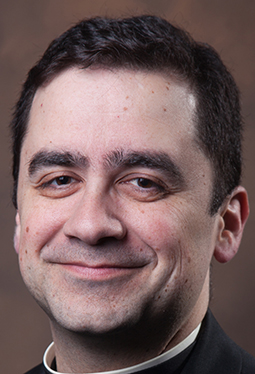
or their own partners, and they do not have reliable police and courts that they can access to protect them,” Walentik said.
The caravan of people coming to the border “are risking their lives by making a difficult journey because they feel there is no other option,” she said.
Father Eric Olsen, parochial administrator of Holy Trinity Parish in St. Ann and Our Lady of Guadalupe Parish in Ferguson, said that “like Pope Francis, I pray that we all may have a deep concern for all immigrants and refugees in our world.”
Though he is relatively new to serving the migrant community, he said, he considers it a privilege “to walk with them in their joys and sorrows, to preach amongst them the Word of God and to shepherd them as part of God’s flock. While our immigrant brothers and sisters face specific challenges, they also bring specific gifts and talents.”
He joins the families in rejoicing in God’s blessings, mourning their tragedies and seeking to do what is right but stand in need of God’s mercy, he said. “These members of our community have inspired me with their determination and work ethic, and they demonstrate for me by their commitment what it means to be a family and to belong to one another. In my life and in my ministry, immigrants are and have been a blessing, for which I am grateful.”
“Seeking asylum is not a crime. We urge all governments to abide by international law and existing domestic laws that protect those seeking safe haven and ensure that all those who are returned to their home country are protected and repatriated safely.”
Catholics in St. Louis are asked to maintain a humane response to refugees fleeing from Central America to the United States. Abp. Carlson In a statement earlier this month, Archbishop … ‘Humane response’ sought to refugee influx
Subscribe to Read All St. Louis Review Stories
All readers receive 5 stories to read free per month. After that, readers will need to be logged in.
If you are currently receive the St. Louis Review at your home or office, please send your name and address (and subscriber id if you know it) to subscriptions@stlouisreview.com to get your login information.
If you are not currently a subscriber to the St. Louis Review, please contact subscriptions@stlouisreview.com for information on how to subscribe.

